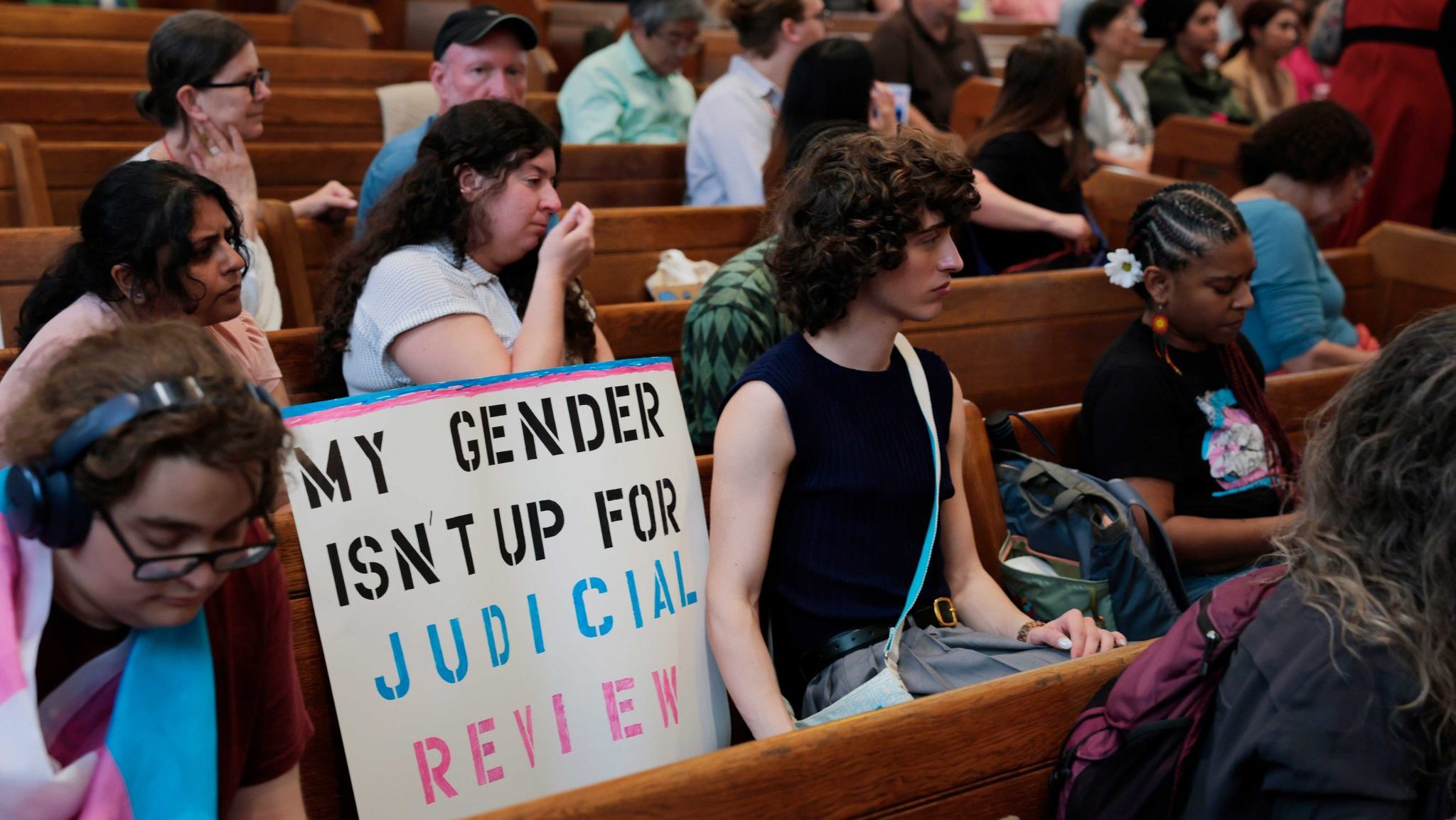In a decision poised to reshape the legal future of transgender healthcare in America, the U.S. Supreme Court has upheld Tennessee’s law banning gender-affirming care for minors, igniting sharp reactions from legal experts, medical professionals, and LGBTQ+ advocates.
The 6-3 ruling, delivered Wednesday, greenlights Tennessee’s restrictions on puberty blockers, hormone therapy, and transition-related surgeries for those under 18, positioning the law as a potential blueprint for similar measures across other states.
A Legal Turning Point for Trans Youth
The case, U.S. v. Skrmetti, was brought by families of transgender youth and a healthcare provider who argued the law unfairly targeted and harmed trans minors. Enacted in 2023, the Tennessee law prohibits physicians from providing gender-affirming treatment to anyone under 18, regardless of the patient’s medical history or psychological evaluations.
Writing for the conservative majority, Chief Justice John Roberts stated that the Equal Protection Clause of the 14th Amendment does not settle “intensely disputed medical and policy questions” related to gender identity and youth care.
“The Equal Protection Clause does not resolve these disagreements,” Roberts wrote. “This case carries with it the weight of fierce scientific and policy debates… the implications for all are profound.”
While the court did not weigh in on whether transgender people constitute a protected class requiring heightened legal scrutiny, the ruling opens the door for more state-level restrictions to survive judicial challenges. Twenty-four other states have enacted similar legislation.
@cbsmornings The Supreme Court on Wednesday upheld a Tennessee law that restricts access to gender-affirming care for minors experiencing gender dysphoria, a decision that is likely to have broad implications for access to medical treatments for transgender youth in half of the country. The three liberal justices, Sonia Sotomayor, Elena Kagan and Ketanji Brown Jackson, were in dissent.
Fierce Dissent from Liberal Justices
The court’s liberal wing, led by Justice Sonia Sotomayor, issued a blistering dissent. Joined by Justices Elena Kagan and Ketanji Brown Jackson, Sotomayor argued the Tennessee law is rooted in sex-based discrimination and directly harms transgender youth.
“This case is about whether Tennessee can forbid doctors from providing necessary medical care to transgender teenagers,” she wrote. “The answer should be a resounding no.”
Calling the majority opinion “incredibly dangerous,” Sotomayor accused the court of retreating from meaningful judicial review and abandoning vulnerable youth “to political whims.” She took the rare step of reading her dissent aloud from the bench.
Advocacy Groups, Experts, and Online Communities React
The Supreme Court’s decision drew swift condemnation from civil rights organizations, medical professionals, and a wave of voices online.
The American Civil Liberties Union, which represented the plaintiffs, issued a strongly worded statement calling the ruling “devastating.” Chase Strangio, the ACLU’s deputy director for transgender justice, warned that the decision paves the way for further legal attacks on gender-affirming care nationwide. “Today’s ruling is a loss not just for trans youth and their families, but for anyone who believes in the basic constitutional right to access medical care,” he said.
Online, the backlash was swift and emotional. The hashtag #TransRightsAreHumanRights began trending on X (formerly Twitter), with thousands expressing solidarity with trans youth. Congresswoman Ayana Pressley posted, “Make no mistake: This is a coordinated attempt to further control our bodies and our lives.” Congressman Shri Thanedar also chimed in saying, “No court should decide a person’s worth, and I’ll never stop fighting for trans communities across this country.”
The Supreme Court just turned its back on trans kids. We won’t.
We will stand up, speaking out, and fighting back. Our message is clear: Trans youth deserve dignity, care, and a future without fear.#TransRightsAreHumanRights #SCOTUS #ProtectTransYouth #StonewallDemocrats pic.twitter.com/0Ee2l5zv1J
— National Federation of Stonewall Democrats (@NatStonewall) June 18, 2025
Today the Supreme Court upheld Tennessee’s cruel law banning gender-affirming care for minors.
My heart hurts for the trans kids who will suffer because of today’s decision.
Make no mistake: This is a coordinated attempt to further control our bodies and our lives.
— Ayanna Pressley (@AyannaPressley) June 19, 2025
In a disappointing decision, the Supreme Court ruled this morning to uphold a Tennessee law that blocks gender-affirming care for trans kids.
No court should decide a person’s worth, and I’ll never stop fighting for trans communities across this country. https://t.co/LOvVt8kUlC
— Congressman Shri Thanedar (@RepShriThanedar) June 18, 2025
Political Implications and the Path Forward
The ruling arrives amid a national wave of anti-LGBTQ+ legislation. The ACLU has tracked over 500 such bills in 2025 alone, with more than 100 directly impacting healthcare access. Activists warn that this Supreme Court decision could embolden lawmakers to pursue additional restrictions, not just for minors, but for adults as well.
Tennessee Attorney General Jonathan Skrmetti praised the ruling, framing it as a defense of “common sense over judicial activism.” He urged lawmakers to base future healthcare laws “on science, not ideology.”
Meanwhile, the Biden administration, which had backed the plaintiffs, criticized the court’s decision. While the ruling didn’t address parental rights under the 14th Amendment, it’s expected that new legal battles on that front may emerge.
President Donald Trump, who returned to office in January, has already issued executive orders targeting gender-affirming care, though some were immediately challenged in lower courts. His administration praised the Supreme Court’s decision, with a spokesperson claiming it protects children from “barbaric procedures” based on “junk science.”
What’s Next?
The ruling does not mandate bans nationwide but gives states broader legal cover to implement similar laws. It also sets the stage for future Supreme Court showdowns on trans participation in sports, healthcare for adults, and other civil rights matters.
While trans youth in more progressive states may continue to access care, Wednesday’s decision underscores the deepening divide over transgender rights in America.
As advocates regroup and prepare for new legal fights, one message remains clear: the future of trans healthcare, and the dignity of the youth who depend on it, hangs in the balance.


